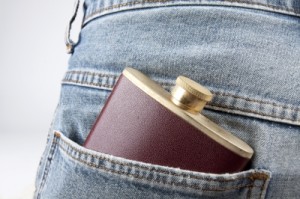Addiction help in Warrington
Tips to help prevent an addiction relapse
I have been seeing a number of clients with addiction problems in and around Warrington and thought I should write a little blog piece on addictions to help people recognise that addiction is a real problem in the UK at the moment and seems to be on the increase.
Addiction can really creep up on you and there comes a point where you have to face the real problem by first recognising you have one. This is the first step toward conquering your addiction. I have many parents or partners of addicts call me for advice and I give it out freely, sometimes spending up to an hour on the phone, which I do for free. But in reality, I need to hear from the addict themselves. They are the one that needs the help, so I always ask the partner or parent to ask the addict to speak to me. Some do, and some don’t. This is a clear indication that the person either hasn’t admitted they have a problem, or isn’t ready to face the addiction and receive help just yet.
And it can be really scary for someone who hasn’t been in the therapeutic environment to consider this as an option, quite often they want to try to do it by themselves with varying degrees of success. But the therapy room isn’t anything to be afraid of. It is a safe environment where you can talk openly and freely and above all, it is strictly confidential. It is between you and I and there is never any judgement.
The process is one of support where we look to build motivation for change and look at strategies and ways to cut the addiction right down and sometimes to abstain immediately. I have seen many clients who stop straight away and we monitor the weeks, the urges and the cravings. Identifying the triggers and high risk situations so we can work through them and formulate an active plan.
Sometimes we have to reduce the addiction gradually, this is sometimes called harm reduction and can be used in alcohol addiction or drug addiction, as these are chemical dependency issues. It can be different for other addictions such as gambling addiction, gaming addiction or even porn addiction. Some people even become addicted to their smart phones and this can have a negative affect on sleep, stress and relationships.
I mentioned high risk situations, or triggers earlier and there are some little tips to help you identify them and help yourself, to prevent relapses throughout treatment.
1. Firstly you must identify the high risk situations and triggers
For alcohol problems and gambling problems, simply having money in your pocket can be a trigger. Payday is another. Walking past a betting shop or a bar. In other addictions, emotions may set off the unwanted behaviour, such as having an argument at work or at home. Loneliness can be an other emotion which causes the addict to try to escape from the feeling or boredom.
2. Know yourself
Urges, high risk situations and triggers are all a very important part for recovery. Denial always seems to pop into the equation and the individual will think that they will not be influenced by these triggers. So you need to know them and yourself and be honest with yourself. Planning is very important so you can avoid these things that cause your addiction. A simple example is: If you are a gambler, walk a different route so you avoid the betting shops. Don’t carry cash with you. Sometimes having no cash can be a trigger, so look out for any urges to get a payday loan.
3. Set out a plan and practice it!
Ask yourself, what will you do if you experience a trigger? For each of your triggers or high risk situations, think of an alternative behaviour. Think ahead of what you can do to react in the best way. A good way to do this is to firstly write it down and then close your eyes and imagine yourself reacting in the correct manner, a sort of role play. Although this sounds simplistic, we use technique in hypnosis. It is a way of mentally rehearsing the event before it happens and to the unconscious mind, it doesn’t really know the difference between reality, memory and make believe. So this can really help.
4. Practice self care
This means that you look after yourself as best as possible. Make sure you are eating ok and getting enough sleep. Exercise on a regular basis and this can all help prevent a relapse. Do things that are healthy and enjoyable for you.
There is something called the HALT, this stands for HUNGRY – ANGRY – LONELY – TIRED. Be aware of the HALT, because you are more likely to encounter a relapse when you are feeling these emotions. If you begin to sense you are experiencing any of these feelings, you need to act swiftly. But do it in a measured and calm way, taking back control. Taking back control can be one of the most rewarding things in the change process. If you feel hunger, eat something but try to make it a healthy snack rather than sweets, chocolate or crisps. If you are tired, you can try taking a small nap or something called a hypnotic power nap, which is basically making yourself very relaxed but without actually falling asleep. Loneliness or anger is something that can be a wee bit trickier to control. If you are angry, you may practice some relaxation exercises, listen to music or exercise your body and the same can be used for the feeling of loneliness. You may even give a friend a call or a member of your family. Look at things that may interest you out of the home such as joining a group e.g meditation, photography or an art class. This is enjoyable, gets you out and meeting new people.
5. Don’t put pressure on yourself!
If you know that having money in your pocket is a definite trigger for you, then do something about that and choose to leave the house without the cash. Sometimes having a partner or family member control your money can help. If you knowingly walk past a gambling establishment or a pub, then you are putting yourself under tremendous pressure, almost testing yourself. And while this can be an important part of being free, you should only really test yourself when your perception of being in control of your habit is at 100% and has been for many months. But for some, keeping away for good is the only way.
For a drinker, thinking that one drink wont matter is a real mistake and that test can lead to a very real relapse. If you are a gambler and think that you can go into a betting shop with your mates and feel fine, may lead to the urge to gamble becoming stronger and you may start to give in to the urges.
So remove yourself from the high risk – be aware of them – work with them – and manage them closely.
If you want to receive help for an addiction problem and you are ready to face the change process, then I am here to help.



